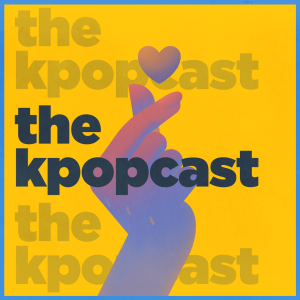
Is access journalism adding to the echo chamber in kpop discourse? For the sake of this conversation, we chose to define "access journalism" as journalism that prioritizes access—meaning media time with idols—over journalistic objectivity and/or integrity. Given the access to the idol and the controlled nature in how it is often brought about, access journalism is often lauded as just being PR for the company or brand. In other words, a free advertisement that abuses the legitimacy that might come with earned media or media coverage.
In k-pop circles, access journalism has traditionally been met with compromises on virtually all sides. Fans want something new but aren’t welcoming of coverage that critiques or presents a less-ideal image of their idols. Publicity teams want positive coverage (and lots of hits from leading publications), but they want coverage to be on message. And journalists want to maintain objective integrity, say something new, and not sacrifice standing with either PR teams or fans. So, what has that meant in outcomes in coverage? When individuals break from this system, what happens? What should we be asking for or doing as fans to create a more healthy system? We’ve assembled some speakers here to discuss.
Join us on Slack: https://join.slack.com/t/kpopcast/shared_invite/zt-93kzxcv6-YNej2QkyY6vaPnhEQJxk0A
Our Newsletter: https://www.getrevue.co/profile/thekpopcast
The Kpopcast Crew:
twitter.com/TheKpopcast
twitter.com/Sparker2
twitter.com/michaelajkpop
twitter.com/DJPeterLo
kpopcast.net
view more
In k-pop circles, access journalism has traditionally been met with compromises on virtually all sides. Fans want something new but aren’t welcoming of coverage that critiques or presents a less-ideal image of their idols. Publicity teams want positive coverage (and lots of hits from leading publications), but they want coverage to be on message. And journalists want to maintain objective integrity, say something new, and not sacrifice standing with either PR teams or fans. So, what has that meant in outcomes in coverage? When individuals break from this system, what happens? What should we be asking for or doing as fans to create a more healthy system? We’ve assembled some speakers here to discuss.
Join us on Slack: https://join.slack.com/t/kpopcast/shared_invite/zt-93kzxcv6-YNej2QkyY6vaPnhEQJxk0A
Our Newsletter: https://www.getrevue.co/profile/thekpopcast
The Kpopcast Crew:
twitter.com/TheKpopcast
twitter.com/Sparker2
twitter.com/michaelajkpop
twitter.com/DJPeterLo
kpopcast.net
More Episodes
Introducing Weeekly to Hella Slangs
 2024-03-12
2024-03-12
 2024-03-12
2024-03-12
Why do Fans Bark at K-pop Concerts?
 2024-02-28
2024-02-28
 2024-02-28
2024-02-28
The Most Memorable K-Pop Song of 2013
 2023-12-30
2023-12-30
 2023-12-30
2023-12-30
012345678910111213141516171819
Create your
podcast in
minutes
- Full-featured podcast site
- Unlimited storage and bandwidth
- Comprehensive podcast stats
- Distribute to Apple Podcasts, Spotify, and more
- Make money with your podcast
It is Free
- Privacy Policy
- Cookie Policy
- Terms of Use
- Consent Preferences
- Copyright © 2015-2024 Podbean.com





